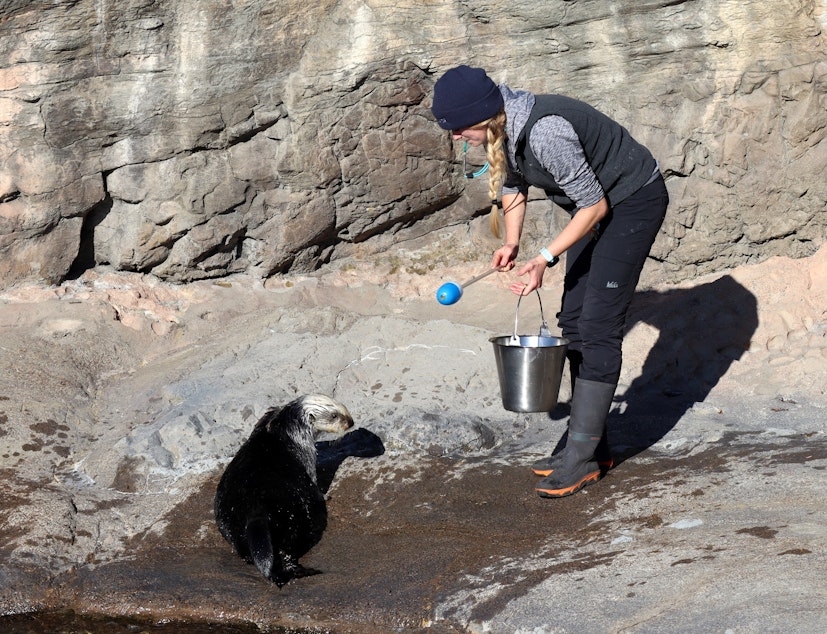Oregon aquarium plans a $4.75 million rehabilitation facility for sick or stranded sea animals

Injured, sick or orphaned seals, seabirds and turtles could get a second chance in a state-of-the-art rehabilitation center if the Oregon Coast Aquarium succeeds with a capital campaign it just launched.
The aquarium in Newport currently uses several older repurposed buildings to diagnose and treat rescued marine creatures. But aquarium leaders want to build a new, higher-capacity wildlife rehab center. The aquarium is set to expand in stages as funds are secured, starting with an additional sea otter holding pool, assistant curator of marine mammals Brittany Blades said.
"Right now there aren't enough facilities, like zoos and aquariums, who can take in stranded pups that aren't able to be released back into the wild," Blades said in an interview beside the otter exhibit.
Blades said an expanded facility could also someday provide a valuable staging point if government agencies try again to reintroduce sea otters to Oregon waters.
The Oregon Coast Aquarium's proposed marine wildlife rehabilitation center is budgeted for $4.75 million. The design includes indoor and outdoor spaces for quarantine, critical care, surgery, observation as well as for staff training.
The aquarium in Newport is one of just three facilities in the Pacific Northwest with a federal permit to rehabilitate marine mammals — and it's the only one in Oregon. The other federally authorized marine mammal centers in the region are PAWS Wildlife in Lynnwood, Washington, and Wolf Hollow Wildlife Rehabilitation Center in Friday Harbor, Washington.
Harbor seals and California sea lions are the two most commonly stranded species, and face tough odds in their first year of life, according to the National Oceanic and Atmospheric Administration.
Most of the time government biologists are inclined to let nature take its course with those two species, since populations of both are abundant. But the lack of response sometimes upsets beachgoers who report ailing sea lions or seals — or worse, attempt to interfere.
"Rehabilitation of pinnipeds from thriving populations is considered in certain cases when there have been negative interactions or serious injuries caused by humans or their pets (e.g., dog bites, fishery interactions, marine debris entanglements)," a priorities document shared with public radio Monday by NOAA read.
Rehab authorizations for migratory seabirds and sea turtles fall under other agencies. The Seattle Aquarium is another place that looks after off-course sea turtles.
Marine animal strandings are increasing due to climate change and ocean warming, according to the aquarium.
Last year, the coastal aquarium treated 176 wild birds from more than 50 species. Aquarium spokesperson Sally Compton said the planned rehab center would continue to care for a similar mix of marine wildlife as now, but in higher numbers.
The Oregon Coast Aquarium currently houses three sea otters and could accept one more if it secures the funds to expand its holding area. The California sea otter population is federally listed as threatened and locally extinct off the Oregon coast.
The fundraising campaign to build out the sea otter holding area is being run separately from the aquarium's larger capital campaign. The aquarium plans to begin construction as soon as a $50,000-$60,000 goal is met. [Copyright 2018 Northwest News Network]

